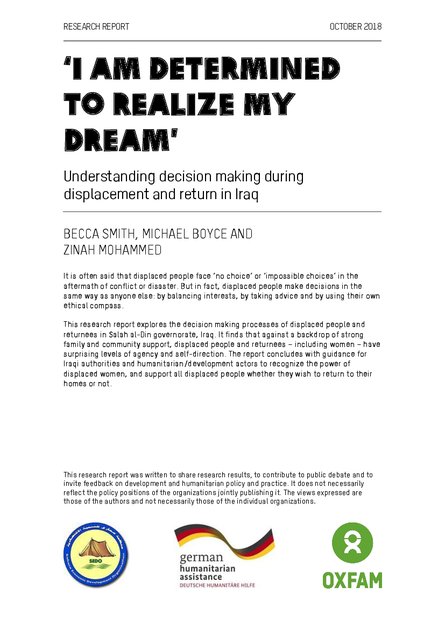
It is often said that displaced people face ‘no choice’ or ‘impossible choices’ in the aftermath of conflict or disaster. But in fact, displaced people make decisions in the same way as anyone else: by balancing interests, by taking advice and by using their own ethical compass.
This research report explores the decision making processes of displaced people and returnees in Salah al-Din governorate, Iraq. It finds that against a backdrop of strong family and community support, displaced people and returnees – including women – have surprising levels of agency and self-direction. The report concludes with guidance for Iraqi authorities and humanitarian/development actors to recognize the power of displaced women, and support all displaced people whether they wish to return to their homes or not.